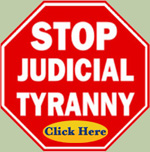Gary Corseri
Activist Post
O tenderest of mercies! The right to speak one’s mind freely, the right to question and challenge—upon which all other rights are hinged!
1. “Corporate Personhood”
The first attack came almost two hundred years ago in 1819, as the Industrial Revolution was beginning to spin serious wheels in the budding Empire. Blacks picked cotton in the South and the mills hummed in Lowell, Mass., and other river-blessed locations in the North. It was a hundred years after Newcomen’s steam engine, and less than two decades after Fulton’s steamboat would once again spur our westward expansion. Given such multifactoral impetus, and its own proclivity—established by Marshall—to oversight, how could our Supreme Court restrain its worst intentions?
And so it declared, in “Trustees of Dartmouth College vs Woodward,” the principle of “corporate personhood.” The Court was essentially restating the 14th Amendment, but now equating the “rights” of corporations to be as free as real, live, human beings from any State’s denial of “equal protection” under the laws within its jurisdiction.
Of course, this 14th Amendment “equal protection” did not apply to cotton-picking slaves, “Indian savages,” women, etc.! And that’s the assault on our national consciousness and conscience. And we have lived with that assault for nearly two centuries!
2. “Fire in a Crowded Theater”
Fast forward exactly 1 century.
Up to my own boyhood in New York City, Oliver Wendell Holmes’ father’s poem, “Old Ironsides,” was still standard 9th grade fare. They say the acorn doesn’t fall far from the oak, and we may discern something of his son’s patriotic fervor in his father’s bombastic poem about an a War of 1812 ship about to be scuttled. Here’s the middle stanza:
The “heroes’ blood” with which Oliver, Jr. wanted to anoint the world, the “victor’s tread” he wanted to protect, belonged to those doughboys drafted to fight Mr. Wilson’s “War To End All Wars.” A group of peacniks had tried to exercise their freedom of speech by distributing flyers opposed to the draft. When the case of “Schenck v. the United States” came before the Supreme Court, Chief Justice Holmes argued in favor of abridging free speech, asserting:
The most stringent protection of free speech would not protect a man falsely shouting fire in a crowded theater and causing a panic. […] The question in every case is whether the words used are used in such circumstances and are of such a nature as to create a clear and present danger that they will bring about the substantive evils that Congress has a right to prevent.
Thus, Holmes provides us two salient phrases in one short paragraph: “shouting fire in a theater” and “clear and present danger.”
Defenders of Holmes like to underline the word “falsely” to excuse their man’s unsubtle attack on our First Amendment. I think they miss the point. Is the distribution of anti-war material really analogous to “falsely shouting fire in a crowded theater?” One could argue that the peace cadets were actually trying to prevent or contain the fire that was then enveloping the world! Further, the “clear and present danger” was already there—it was called the Great War!
 Fifty years later, during another unnecessary war (as almost all wars are—despite the pageantry and rhetoric), the Supreme Court at least tempered Holmes’ imperious judgment in the case of Brandenburg v. Ohio, limiting “banned speech” to the incitation of “imminent lawless action.” Of course, a lot of damage had been done in the meantime. Free speech had been suppressed, and generations had come and gone censoring themselves and others.
Fifty years later, during another unnecessary war (as almost all wars are—despite the pageantry and rhetoric), the Supreme Court at least tempered Holmes’ imperious judgment in the case of Brandenburg v. Ohio, limiting “banned speech” to the incitation of “imminent lawless action.” Of course, a lot of damage had been done in the meantime. Free speech had been suppressed, and generations had come and gone censoring themselves and others.
3. Plessy v. Ferguson
Another time the Supreme Court actually followed Spike Lee’s general advice to “do the right thing” was in 1954 with “Brown v. Board of Education.” Once again, the Justices were actually correcting the myopic vision of their predecessors’ decision in the 1896 case of Plessy v. Ferguson, with its “separate but equal” gobbledygook about schools for folks with white skin and for other folks with black. In my childhood, I remember driving through the South with my parents, seeing numerous billboards with the injunction, “Impeach Earl Warren!” Warren’s infamously “liberal” court had had the effrontery to unanimously aver that “separate educational facilities are inherently unequal.”
Even as an 8-year old I could see the logic in that! But now, I wonder: how many 8-year olds had gone to school over a 60-year period and never even knew they were being educated and indoctrinated in a system that would not recognize their essential equality? And what did “freedom of speech” mean in those segregated schools where teachers and administrators were enjoined to follow the Supreme Court sanctioned script? How many ardent voices were stifled and lost because the script was rotten… and “the law of the land”?
4. Violent Video Games
Let’s move on to the past couple of years.
Writing for the New York Times on June 28, 2011, critic Seth Schiesel cheered:
It is now the law of the United States that video games are art. It is now the law of the United States that video games are a creative, intellectual, emotional form of expression and engagement, as fundamentally human as any other.
In the case of “Brown v. Entertainment Merchants Association,” June, 2011, writing for the five justices in the majority, Antonin Scalia cogitated:
Like the protected books, plays and movies that preceded them, video games communicate ideas—and even social messages—through many familiar literary devices (such as characters, dialogue, plot and music) and through features distinctive to the medium (such as the player’s interaction with the virtual world. That suffices to confer First Amendment protection.
 Here’s another example of our First Amendment being whacked … and stretched to fit the model first postulated by Marshall’s court back in 1819; i.e., that corporations are entitled—yes, that word, “entitlement”—entitled to the same protections as “persons” under the First Amendment. And that means, entitled to make as much money from susceptible kids as is humanly—or corporately—possible.
Here’s another example of our First Amendment being whacked … and stretched to fit the model first postulated by Marshall’s court back in 1819; i.e., that corporations are entitled—yes, that word, “entitlement”—entitled to the same protections as “persons” under the First Amendment. And that means, entitled to make as much money from susceptible kids as is humanly—or corporately—possible.
Whether Grand Theft Auto should be placed in the same category as The Outline of History (books), Hamlet (plays) or Casablanca (movies) is a fine point Justice Scalia seems unwilling to consider. (Porn violence, shouldn’t it more properly be placed with Debbie Does Dallas?)
Here’s another example of a SCOTUS decision which one hopes a much more rational, real, live people-serving Court will overturn (sooner rather than later). I’ll use Schiesel’s words from his pro-decision article to make some counterpoints. (And, not to poison the well too much, let’s recall that Mr. Schiesel works for one of the largest and most powerful news corporations in the world).
Monday’s decision invalidated a California law intended to regulate the sale of violent video games to children. As someone who plays hundreds of hours of violent video games every year, I certainly recognize that many are extremely inappropriate for children. It would be unconscionable to allow a young child to sit through, much less control, the gory scenes in some games, just as it would be to let them watch an R-rated “torture porn” film.
With a game like “Grand Theft Auto IV,” set in a satirice rendition of New York City, there are certainly 16-year-olds who will do nothing but embark on wild virtual crime sprees. … That doesn’t mean that game retailers should sell anything to anyone. The game industry has adopted an internal ratings and enforcement system that is at least as effective as the similarly private and voluntary system for Hollywood films. It is only responsible that any media industry give parents thorough information about the violence and sexual content of its products.
But as the court ruled on Monday, deciding just what ideas children may be exposed to is not the proper role of government.
To which one feels compelled to respond to Messrs. Schiesel and Scalia—as Joseph Welch responded to the demagogue McCarthy during the infamous Congressional witch-hunt of 1954: “Have you no sense of decency, sir? At long last, have you left no sense of decency?”
Is this not one of the great myths of our Corporatocracy, allowing for the mangling of our First Amendment: “As the Court ruled on Monday, deciding just what ideas children may be exposed to is not the proper role of government”? Actually, is our government not constantly deciding what ideas our children may be exposed to from the first time they pledge allegiance to the flag, to the books they read throughout public school?
 The plain fact is, those kids most in need of “parental guidance” are the ones least likely to get it.(Let’s recall Newtown’s Adam Lanza, for example, holed up in his basement, saturating his tortured mind with the bizarre, violent, blood-letting of “Grand Theft Auto,” etc.) But, in a world as skewed as ours, the rights of “corporate persons” to make tons of money by mind-raping kids trumps the rights of flesh-and-blood persons to protect their children from garbage videos, garbage food, garbage pharmaceuticals, etc.
The plain fact is, those kids most in need of “parental guidance” are the ones least likely to get it.(Let’s recall Newtown’s Adam Lanza, for example, holed up in his basement, saturating his tortured mind with the bizarre, violent, blood-letting of “Grand Theft Auto,” etc.) But, in a world as skewed as ours, the rights of “corporate persons” to make tons of money by mind-raping kids trumps the rights of flesh-and-blood persons to protect their children from garbage videos, garbage food, garbage pharmaceuticals, etc.
5. Corporations United
All of which leads up to the “Citizens United” decision of 2012.
All that is necessary to correct most of the problems of the world, said Confucius, is “to rectify the names.” In which case, I submit, the name of this perverse decision be changed to “Corporations United.”
If Marshall’s court declared in 1819 that corporations were entitled to the same rights and privileges guaranteed to persons under the Fourteenth Amendment, then “Citizens United” took matters one step further and stressed what every American already knows: Money talks! With the same sort of twisted logic the Court applied in Plessy v. Ferguson (“separate, but equal”), we now have the Court affirming that those with the most loot can game the system, stack the deck, purchase the biggest bullhorn (the glitziest TV ads, etc.) while maintaining that beloved fiction of “one person, one vote”!
Basically, the Court struck down provisions of the Bipartisan Campaign Reform Act of 2002 that had prohibited corporations and unions from spending on “electioneering communications.” (Nice touch to add “unions” there! One wonders if all the unions in America could match the buying power of one giant corporation!)
The sagacious Justice Stevens led the four “liberal” dissenters to the majority opinion. In a 90-page dissent, Stevens averred that the ruling “threatens to undermine the integrity of elected institutions across the Nation. … A democracy cannot function effectively when its constituent members believe laws are being bought and sold.”
That pretty much cans the cant: “laws are being bought and sold”!
6. The Voting Rights Act
The sixth instance of Court defilement is not yet a “case,” merely a “review.” But, one must wonder: with glaring, documented examples of “voter suppression” in the 2012 election, why would the Court train its beagle eyes on the Voting Rights Act of 1965—perhaps the best achievement of the Johnson Administration?
Once again, Justice Antonin S. has put himself out front of the pack. He wonders about the “phenomenon that is called racial entitlement.”
There’s that loaded word again—“entitlement.” It seems that, in the Court’s purview, protecting a people’s right to freedom of speech and assembly—manifesting most fundamentally in their right to vote—is some sort of suspect “entitlement.” But, a corporation’s right to spend multi-millions on “electioneering”—that is not an “entitlement,” that is protected under our First Amendment!
The timing here is one “phenomenon” that seems to have eluded Mr. Scalia. As The Washington Post noted:
The challenge to Section 5 of the 1965 Voting Rights Act was launched two years ago, and the court added it to its docket just days after an energized minority electorate played a critical role in the reelection of President Obama, the nation’s first African American president.
It’s well past time to exercise our First Amendment (while we still can) to speak out against the abuses and myopia of our very flawed Supreme Court!
Gary Corseri has taught in US public schools and prisons, and at US and Japanese universities. His prose and poems have appeared at ActivistPost, Global Research, The New York Times, CounterPunch, The Village Voice, CommonDreams and hundreds of other periodicals and websites worldwide. His dramas have been produced on Atlanta-PBS, and he has performed his work at the Carter Presidential Library and Museum. He has published books of poetry, the Manifestations literary anthology (edited), and the novels, A Fine Excess and Holy Grail, Holy Grail. He can be contacted at [email protected].
linkwithin_text=’Related Articles:’



Be the first to comment on "6 Ways Our Supreme Court Has Defiled Our Constitution"